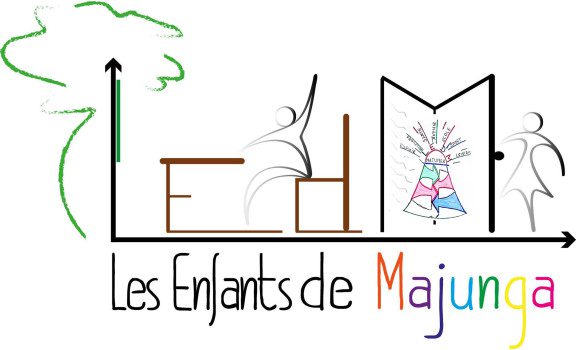Content
These exchanges are great places to start if you want to buy crypto and store it safely. Centralized cryptocurrency exchanges are privately owned corporations that facilitate transactions between cryptocurrencies. A centralized exchange functions as a third party between buyers and sellers. Users trust these companies to help conduct transactions and handle their digital assets.
The potential risk inherent in some centralized exchanges is that these exchanges, being held by a single entity, are more vulnerable to an attack. Crypto exchanges typically take commissions for every transaction on the platform, which usually ranges between 0 – 0.25%. Another way they generate revenue is by charging a fee for coins to be listed on their platform. Another aspect where crypto exchanges differ from traditional exchanges is the working hours. Crypto exchanges work 24/7, unlike traditional stock exchanges, which have predefined trading hours. DEXs remove the need for intermediaries in the transaction between buyer and seller.

Order book decentralized exchanges match buyers and sellers directly, without a central authority. The most popular order book DEX is probably what exactly is a centralized crypto exchange EtherDelta, which was launched in 2016. However, there are many other DEXs representing this category, such as IDEX, Radar Relay, and Paradex.
Decentralized vs. centralized crypto exchanges
The vast majority of decentralized exchanges operate using self-executing smart contracts and rely on complex code and algorithms to carry out transactions. However, things like the DEX interface, liquidity providers, transaction fees, and more depend on which type of decentralized exchange platform we’re talking about. The most defining characteristic of decentralized crypto exchanges is having no third parties involved in transactions initiated on such platforms.
CeXes are institutions that facilitate trade between both fiat currencies and cryptocurrencies. At their core, their main job is to allow you to trade fiat like US dollars to cryptocurrencies like Bitcoin or the thousands of other crypto tokens out there. They are useful when a large number of people may be simultaneously trying to buy and sell the same type of asset. In the traditional economy, famous exchanges include the New York Stock Exchange and the London Metal Exchange. In the crypto sector, some well-known CEXs include Binance, Coinbase, Gemini and Kraken.
- Centralized exchanges allow users to buy and sell crypto for fiat currencies like the US dollar, or also for other crypto assets like Bitcoin.
- This is simply because the masses prefer CEXs over DEXs, and by the sheer presence of mass buyers and sellers on the centralized platforms, they are liquid.
- Buy and sell orders are aggregated into an ‘order book’ which is maintained by the exchange for the purpose of efficiently and automatically matching buyers and sellers.
- Peer-to-peer bitcoin exchange platforms can be an effective way to buy and sell bitcoin, but since you must individually negotiate trades, they carry a certain level of inconvenience.
- Ethereum, for example, can only process about 15 transactions per second, but Solana can process 50,000 transactions per second.
- As a result, trading on Ethereum will be slower than centralized choices.
The opinions and views expressed in any Cryptopedia article are solely those of the author and do not reflect the opinions of Gemini or its management. A qualified professional should be consulted prior to making financial decisions. It’s important to research the security history of an exchange before you entrust your funds to the platform. He has worked https://xcritical.com/ as a reporter on European oil markets since 2019 at Argus Media and his work has appeared in BreakerMag, MoneyWeek and The Sunday Times. CFDs are leveraged products, which means that you only need to deposit a percentage of the full value of the CFD trade in order to open a position. But with traditional trading, you buy the assets for the full amount.
Get your daily dose of crypto and trading info
The largest crypto exchange in the world is Binance, which is centralized although it has launched its own DEX. The centralized Binance exchange processes more than $20 billion in transactions each day, compared with less than $2 billion for the largest DEX Uniswap. These exchanges typically have high trading volumes and low fees.
Transfer some fiat currency from your bank account to your account on the CeX. The material provided on this website is for information purposes only and should not be understood as an investment advice. Any opinion that may be provided on this page does not constitute a recommendation by Capital Com or its agents. We do not make any representations or warranty on the accuracy or completeness of the information that is provided on this page. If you rely on the information on this page then you do so entirely on your own risk. Additionally, they enable developers to list their project’s tokens subject to the assets passing a vetting process.
DEX aggregators
These exchanges have a third party that helps conduct transactions to make sure they go through as intended — similar to a brokerage. Users using the exchange’s custodial wallet don’t hold the private keys to them. CEXs are a safe option because they comply with government requirements.
Similarly, since there is no involvement of a third party, DEXs reduce counterparty risk and can reduce systematic centralization risk in the cryptocurrency ecosystem. Decentralized exchanges provide better security to users against hacking attempts and other such attacks. However, CEXes do usually have friendlier UI and higher trading volumes. On DEXes, no central authority figure watches over all transactions, and the platforms allow for better privacy and anonymity for users.
What are decentralised exchanges?
Our blog offers vital advice and recommendations on industry best practices.
Tonight is the night we leak it all on the 6th Pega Insider 😛
– New prize pools (will it go up or down, or both?)
– Pega merging, how does it work and why?
– New race lobby mechanics?
– Centralised exchanges?
– Mobile gameplay?You have questions, I’ll bring answers! ❤️ pic.twitter.com/fmc5cRHFOx
— Corey Wilton 🇦🇺 (@RealCoreyWilton) April 13, 2022
A bitcoin exchange is any service that matches buyers of bitcoin with sellers. Exchanges are what make Bitcoin a liquid asset for traders at large scale. Liquidity refers to the ease with which you can trade in and out of an asset – and it depends largely on the number of buyers and sellers there are for an asset. Cash is typically considered the most liquid asset, as it’s almost universally accepted. In other words, it’s easy to exchange cash for practically anything you want.
How does crypto exchange work?
For example, if someone paints your house, you could potentially negotiate to send the person an agreed amount of bitcoin as payment. As there is no central server, DEXs are also much more resistant to censorship of any kind or form. In contrast, centralized exchanges can be shut down or censored by governments or other regulators — but DEXs cannot. Additionally, most DEXs have a more sophisticated structure than centralized exchanges do. These platforms allow users to trade on multiple DEXs simultaneously.
This generally requires entering some basic information, such as your name, birthday, mailing address and Social Security number. You also may need to submit a picture or scan of a government-issued I.D. Crypto exchanges work in much the same way as exchanges for other types of assets, like a stock exchange. The transactions in DEXs are facilitated through the use of self-executing agreements written in smart contracts. Compared to traditional financial transactions, which are opaque and run through intermediaries who offer very limited insight into their actions. Order books provide information about trading activity such as price, volume, expiry date, and whether the order is a buy or sell when a user executes transactions using P2P.
How Do Crypto Exchanges Work?
The seller is notified of the offers via the various contact channels that they select. On-chain order book—Although this is the most decentralized option, it is not feasible for most blockchains because each transaction must take place on the blockchain. Ethereum, for example, can only process about 15 transactions per second, but Solana can process 50,000 transactions per second. As a result, trading on Ethereum will be slower than centralized choices.
Another benefit of centralized cryptocurrency exchanges is their friendly user interface. Users don’t have to spend hours learning about the ins and outs of digital currencies or the exchange. The best ones will offer live chat support and have a wide selection of coins. While you won’t get the best price when using centralized exchanges, you’ll get a high volume of coins and minimal fees.
Centralized exchanges are well-known for their extra layer of security and reliability when we talk about transactions and trading. Since they make transactions through a developed, centralized platform, DEX offers higher levels of comfort. The importance of cross-chain protocol lies in the fact that it allows users to share data and trade tokens without any intermediary. This technology has become increasingly popular in the modern tech world.
The withdrawal fees charged by exchanges tend to change frequently, often without notice. Generally speaking, the more users an exchange has, the greater ‘market depth’ it is able to provide. People who place buy and sell orders on exchanges are known as market makers. The more orders there are on the book, the easier it is for people to buy and sell large amounts of crypto at closer to the global market rate. In markets, takers are those who reduce liquidity by taking orders that are already on the books. You can also be a taker when you place a limit order if your order happens to match with another person’s order that’s already on the books.
Still, compared to cash, it’s not liquid, particularly when it comes to using it to buy something in the real world — and other cryptoassets are less liquid than Bitcoin. Critically, by definition, a centralized cryptocurrency exchange takes custody of your bitcoin. This has a number of implications relating to security, but also relating to the freedom you have to use your bitcoin as you wish.
